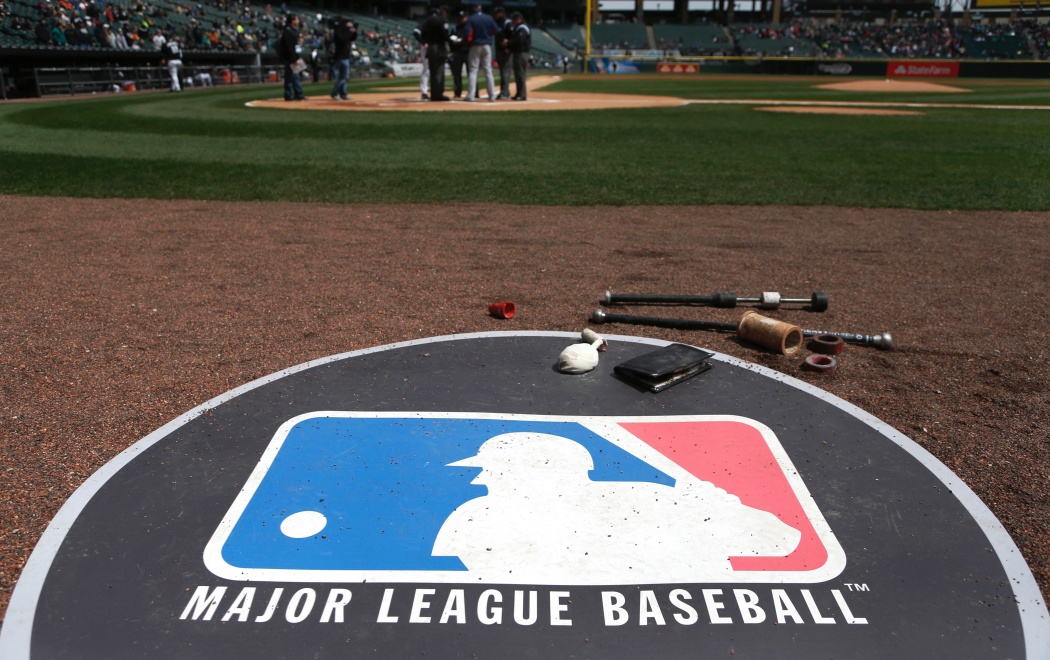MLB discussing plan for all games to be played in Arizona after coronavirus stoppage
Story Originally Published on CNBC.com (4/7/20)

Add one more idea to Major League Baseball’s plan to resume operations after the coronavirus pandemic forced the worldwide suspension of sports.
According to multiple reports, MLB has discussed the possibility of playing all games in Arizona, with teams stationed in confined environments. Clubs would play games at spring training ballparks around the Phoenix area. Chase Field, the home of the Arizona Diamondbacks, is also an option.
Trump met with reporters after the call, saying he wants to see fans back in arenas as soon as possible.
“And the fans want to be back, too,” the president said. “They want to see basketball and baseball and football and hockey; they want to see their sports.”
According to ESPN, ideas discussed around a reformatted MLB season include seven-inning games with electronic strike zones, no mound visits and players sitting in stands six-feet apart to honor social distancing guidelines.
MLB’s plan to resume follows a compensation deal it reached with the players union, which calls for $170 million to be distributed. Players also agreed to prorated salaries if the league’s 162-game regular season is trimmed due to the coronavirus suspension.
“MLB has been actively considering numerous contingency plans that would allow play to commence once the public health situation has improved to the point that it is safe to do so,” MLB said in a statement.
“While we have discussed the idea of staging games at one location as one potential option, we have not settled on that option or developed a detailed plan. While we continue to interact regularly with governmental and public health officials, we have not sought or received approval of any plan from federal, state and local officials, or the Players Association. The health and safety of our employees, players, fans and the public at large are paramount, and we are not ready at this time to endorse any particular format for staging games in light of the rapidly changing public health situation caused by the coronavirus.”
Neal Pilson is founder of consulting firm Pilson Communications and spent 13 years running CBS Sports. In an interview with CNBC, Pilson said he’s “skeptical” about leagues resuming play this summer, adding it’s unlikely commissioners would know enough about the coronavirus spread.
Pilson said leagues would have to collect adequate information to properly plan for resuming, adding it could take two months to prepare. “Are we going to know enough on May 1 or June 1, to schedule live sports on July 1 or August 1? I can appreciate it’s the kind of thinking we should be doing, but what concerns me is basically we don’t know enough. I doubt we will know enough in the next 30 to 60 days to project live sports.”
And if the leagues do overcome the logistics of resuming, Pilson wonders what message the leagues would be sending players.
“You’re saying, you guys go ahead and risk getting the disease, as long as we have TV money,” Pilson said. “It’s hard to imagine the players themselves would want to gather and finish the playoffs even in a protected situation where you might just have TV cameras and production crew and no fans.”
MLB has media rights deals with ESPN, Fox and Turner Sports totaling roughly $12 billion. The league’s contracts with ESPN and Turner are set to expire after the 2021 season. Fox renewed its deal with MLB in 2018 and has secured through 2028.
On Monday, National Basketball Association Commissioner Adam Silver said his league is still weeks away from deciding its future, which could include a postseason tournament in Las Vegas.
“You have all this clever thinking but what you have to take into account are risk factors,” Pilson said. “The athletes themselves may not want to be in a locker room with 12 to 25 of their teammates, and you can understand why, especially since athletes are getting COVID-19 like anybody else.”
Steve Sabol Bio
Highlighting the members of the 2020 Centennial Class.
Golf world presents revised calendar of events for 2020
In recent weeks, the global golf community has come together to collectively put forward a calendar of events that will, serve to entertain and inspire golf fans around the world.

